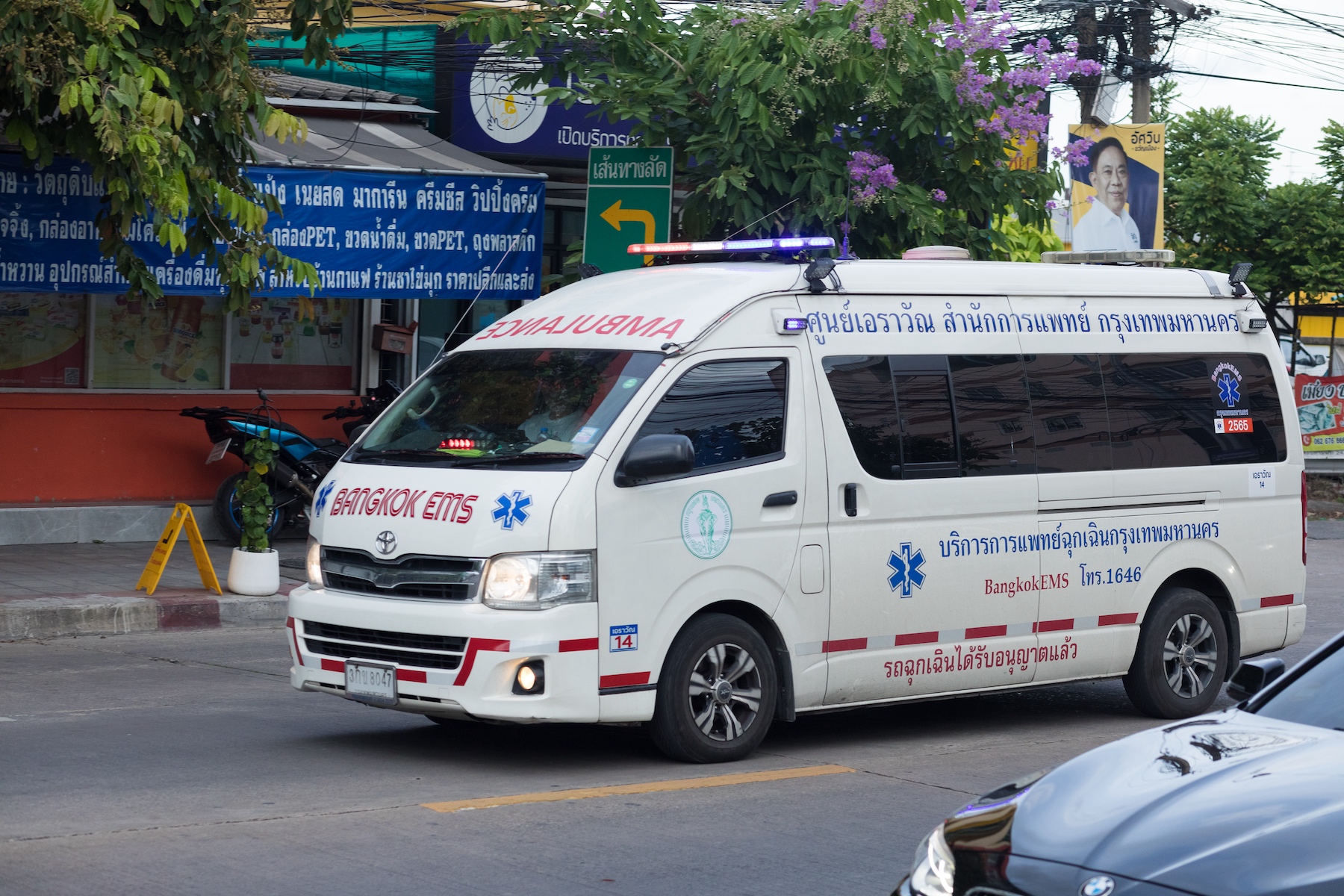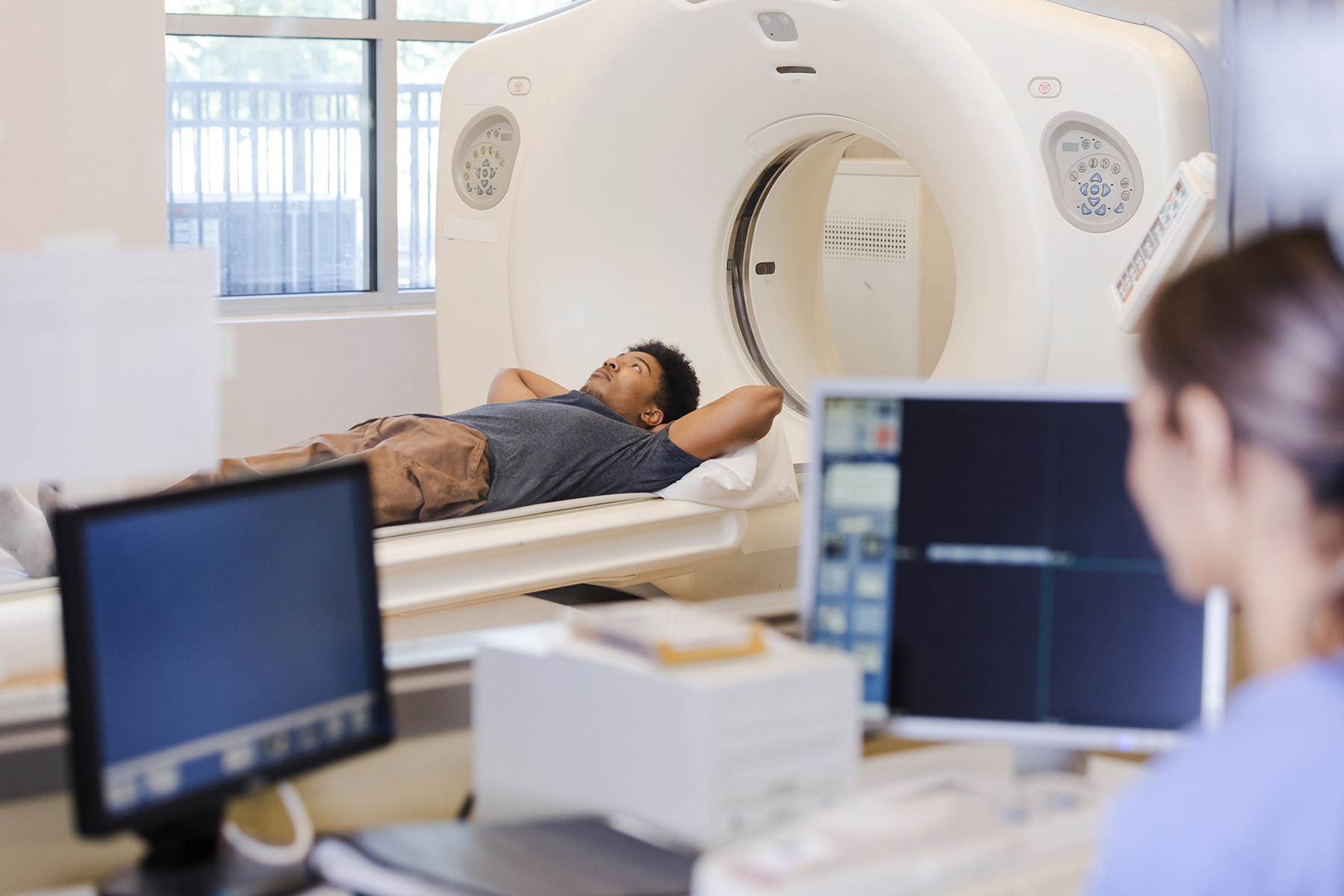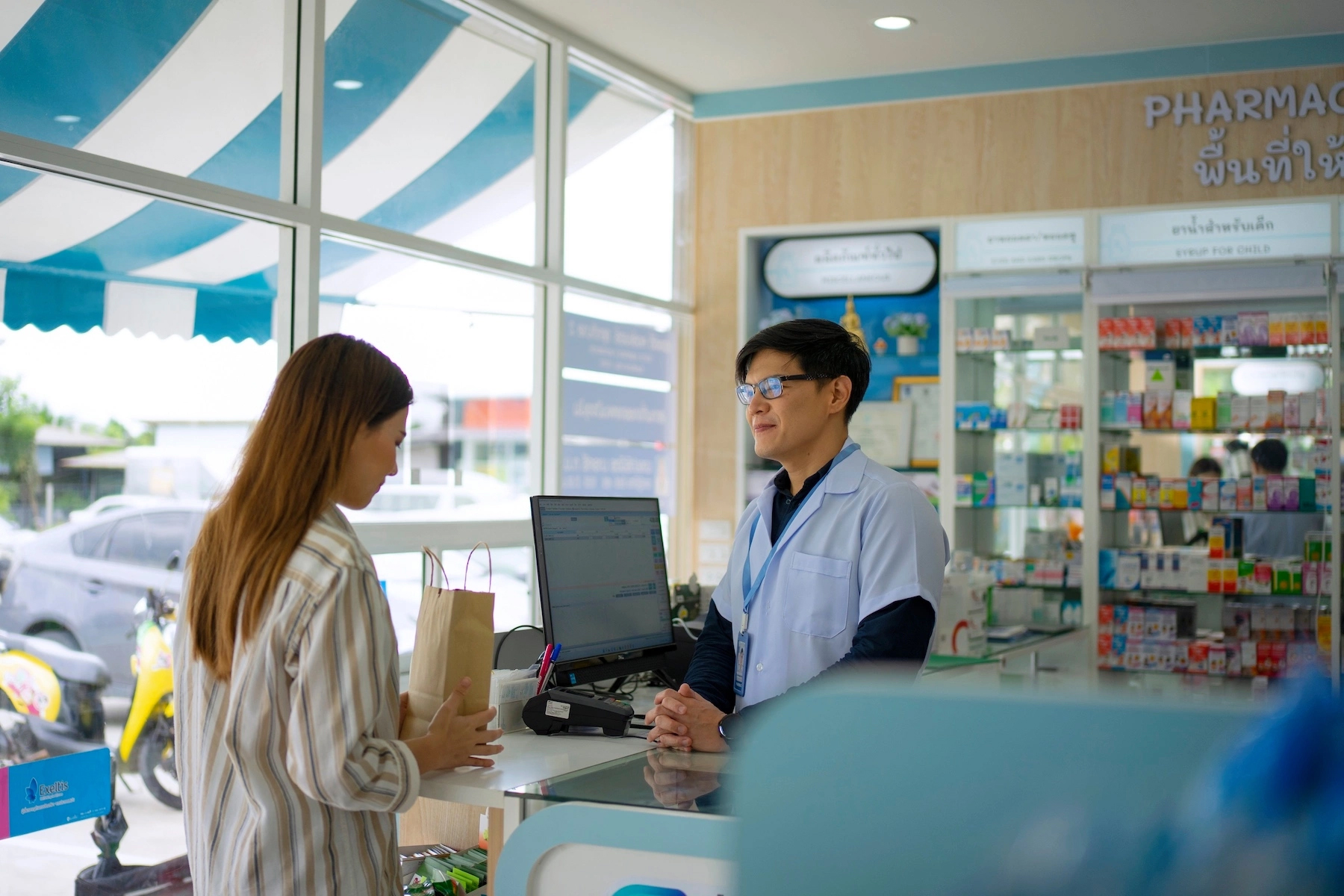Whether you’re popping into a clinic for a cold or navigating referrals for something more serious, seeing a doctor in Thailand can be surprisingly straightforward. It all depends on your location and what you’re willing to pay.
Keep reading for the following information:
- Overview of doctors in Thailand
- Who can see a doctor or GP in Thailand?
- How to find a doctor near me in Thailand?
- How to see a doctor in Thailand: step-by-step
- How much do doctor visits cost in Thailand?
- Overview of Thai doctors’ services
- How to complain about a doctor or GP in Thailand
- Practical medical words in Thai
- Useful resources
Allianz Care
Allianz Care is a world leader in providing international health insurance. Their various premiums provide professionally designed solutions for a variety of expat lifestyles. So, wherever your life takes you, make sure you have the right health protection for you and your family with Allianz Care.
Overview of doctors in Thailand
Thailand has a solid healthcare system that covers nearly 98% of all residents, including expats. The system is funded through a combination of public and private health insurance, which ensures that everyone can access a broad range of medical services, including doctor visits (หมอ) and emergency care.
According to the Ministry of Public Health (MOPH – กระทรวงสาธารณสุข), Thailand has relatively few doctors compared to the rest of the region. In 2023, there were 6.5 doctors per 10,000 residents (ASEAN average: 11.3). That said, the number of doctors can vary a lot depending on the location. For example, Bangkok had roughly 21.6 doctors per 10,000 patients, while Chiang Mai had around 11.9. Meanwhile, underprivileged places like Nong Bua Lamphu had only 2.2.
Just 15.9% of these are family doctors, which translates to 1.0 GPs per 10,000 inhabitants.

Thai doctors must be licensed and registered through the Medical Council of Thailand (TMC – แพทยสภา), which is overseen by the MOPH.
Family doctors and GPs in Thailand
Family doctors or general practitioners (GPs – แพทย์เวชปฏิบัติทั่วไป) are often the first stop for most healthcare needs in Thailand. They work at health stations (สถานีอนามัย) and (some) hospitals, and you are free to choose whichever doctor you prefer.
Standard opening hours for public outpatient departments (OPDs) at government hospitals are generally from 08:00 to 16:00, Monday to Friday, though exact times vary. Smaller community health clinics may have more limited hours. Most public facilities are closed on weekends and public holidays.
Private clinics typically have more flexible opening hours. Most operate from 08:00 to 17:00 or later, with many in busy areas offering evening and weekend services. A number of international hospitals and urgent care centers operate 24/7.
GPs in Thailand treat routine medical issues, perform health screenings, manage chronic diseases, and refer patients to specialists when necessary. They also handle your medical history and coordinate ongoing treatment plans.
Medical specialists in Thailand
If you need more specialized care, the next step is usually to see a medical specialist (แพทย์เฉพาะทาง). Thailand has a wide range of specialists across both the public and private health sectors, covering fields like dermatology, cardiology, orthopedics, pediatrics, and more.
Specialists typically work in hospitals or private health centers. Public hospitals usually operate from 08:00 to 16:00, Monday to Friday. Some may open on Saturday mornings, but hours vary by location. Private clinics and international hospitals often have longer and more flexible hours, including evenings and weekends.

Patients need a GP referral to see a specialist in the public sector. Waiting times can be long, especially at major hospitals in Bangkok and other large cities. It may take several days or weeks to get an appointment; consulting highly sought-after specialists (e.g., cardiology, dermatology, and orthopedics) can even take a few months.
With private healthcare, you don’t need a referral to see a medical specialist, though it could help you and them identify your situation more easily. Your insurance may also reimburse more if you do have one.
Who can see a doctor or GP in Thailand?
Everyone can access medical care to some degree or another, including asylum seekers, refugees, and tourists. However, for non-urgent medical help, you have to pay large out-of-pocket costs or have health insurance coverage – either public, private, or both.
Our article on health insurance in Thailand covers the topic (and costs!) in more detail, but basically, there are both public and private doctors. While they both offer great standards of care, the difference is in the accessibility and insurance coverage.
For example, public services are overburdened and understaffed, leading to longer waiting times and more rushed exams. Private doctors, on the other hand, cost more but have shorter waiting times and offer longer, personalized visits. They’re also more likely to speak fluent English.
How to find a doctor near me in Thailand?
If you are in a life-threatening situation, go to the nearest hospital emergency department (แผนกฉุกเฉิน). You can also use the Thai EMS app or call 1669 for ambulance services or 191, which is the main emergency number in Thailand. If you don’t speak Thai, you can ask to speak in English or call the tourist police at 1155. They will help connect you to the appropriate service.

If your situation is less immediate (and more you looking for information), you can find doctors and GPs listed on the TMC website. The Department of Health Service Support (HSS) also keeps an updated list of licensed hospitals in Thailand.
For English-speaking doctors, you can check websites like DoctorAnywhere, Doctorsa, and HealthDeliver. And if you need non-urgent medical help outside working hours, you can use a private service like Doctor on Call.
How to see a doctor in Thailand: step-by-step
Step 1: Register with your preferred doctor
If you’re using the public system, you’ll need to sign up for social security. After that, you’ll automatically be registered with the health station in your area. That said, Thai residents are free to choose any doctor they want. Although they can switch physicians freely, most people tend to stick with one GP for practicality and familiarity.
Some private GPs may require you to register beforehand, while others take appointments on a case-by-case basis. Check with your preferred doctor or health center to see what their process is.
Step 2: Book a doctor’s appointment
Walk-in appointments are very common in Thailand, though peak hours can mean waiting. You’ll typically get seen faster by a doctor when you book in advance. You can do so with a quick phone call to the individual health center or using their online service.
You can typically expect to wait a few days to see a public doctor, depending on the location. Thailand’s private doctor sector has significantly shorter waiting times, often with same-day or next-day slots for both GPs and specialists. Naturally, this also comes with higher out-of-pocket costs.

If you prefer, you can also use private telehealth services like DoctorAnywhere or MorDee to speak to a doctor online.
Step 3: Visit the health center
It’s recommended you arrive a few minutes before the scheduled appointment time, as doctors in Thailand are generally quite punctual, and you will usually be seen close to your appointment time, barring any incidents.
Make sure to bring your social security card (for public doctors) or health insurance card (for private services). Also bring your ID and wallet. Some clinics will charge you before the appointment, while others allow you to pay afterward.
Expats should keep in mind that Thai culture doesn’t involve too much touching. So, if your doctor appears to be physically distant, it’s because of that and not because you are gross…ly ill.
How much do doctor visits cost in Thailand?
Without proper health insurance, a visit to a public doctor or GP costs around ฿100–300, depending on the services provided. Specialists typically charge around ฿300–500 for a consultation, also depending on the services provided. You may also face additional charges for lab work, imaging, and prescriptions.
Public insurance covers most essential treatments, including doctor visits and specialist care. Some services, like specialist care without a GP referral, require a copayment. However, this is usually no more than 10%.

Of course, when you visit a private doctor in Thailand, the costs are a bit higher. For example, private GP clinics charge ฿300–800 for a consultation, while mid-range hospitals charge around ฿800–1,500. If you go to an international hospital (e.g., Bumrungrad or Bangkok Hospital), you can expect to pay ฿1,500–2,500+. Again, there may be additional fees for lab work, imaging, and prescription medications.
Consultations with specialists can cost anywhere from ฿500–1,500 at private clinics to ฿2,000–4,000+ at international hospitals.
Do I need health insurance in Thailand?
Yes and no. Our article on Thai health insurance explains everything in full detail, but as a quick summary:
- Health coverage is a requirement for most entry visas
- Public insurance is mandatory for all residents who pay social security
- Foreign nationals who can’t access Thailand’s social security scheme will need to pay any medical bills themselves or take out private insurance to cover it for them.
There are many private health insurers in Thailand, and it’s worth shopping around to find the best deals. Aside from the home-grown health insurance providers, there are also international insurers who cater specifically to expats. These providers are ideal for residents who travel outside the country a lot or simply prefer expat-focused care:
Overview of Thai doctors’ services
Prescription medications
If necessary, the doctor may prescribe you medication, which you can pick up from any pharmacy (ร้านขายยา) in Thailand. To find your nearest pharmacy, you can use any search engine or check the Thai-language search portal of the Thai FDA. If you need medication outside of regular hours, look for one that’s open 24/7.

You typically don’t need to pay any copayments; health insurance covers the cost of most standard prescriptions.
Expats are sometimes surprised by the availability of over-the-counter medicines in Thailand. For example, (some) antibiotics and birth control medication can be bought without getting a prescription first.
Medical tests in Thailand
While Thai GPs can do several medical tests on location, other testing needs to be done at the hospital. In case of the latter, you will be given a referral. You can typically choose how you receive your results: via post, email, or by collecting them from the medical center.
Many private insurance providers offer annual health checks, including weight and body mass index (BMI), as well as blood and urine tests. If you are worried about your health or would like to be tested for something, you should reach out to your family doctor or local clinic.
How to complain about a doctor or GP in Thailand
If you want to file an official complaint about a doctor or GP in Thailand, you must first raise it with the health clinic directly. They may be able to resolve the issue so that you don’t have to take it further.
After that, you can fill out a complaints form with the Department of Health or reach out to the government’s 24-hour complaints line (1111) by phone or app. You can also contact the Office of the Ombudsman for help and advice.
Another option is to take legal action through the Thai courts. However, this can be a long and expensive process, so it is best to seek advice from an experienced legal professional first.
Practical medical words in Thai
Most large hospitals and health centers in Thailand have English-speaking staff. However, it is a good idea to have a phrasebook or a translator app on your phone in case you need to explain more complicated health issues.
You’ll also want to remember some of these medical words in Thai:
| English | Thai | Pronunciation |
| general practitioner | หมอทั่วไป | mor tua-pai |
| doctor’s office | คลินิกหมอ | khlee-nik mor |
| appointment | นัด | nat |
| pain | ปวด | bpuat |
| headache | ปวดหัว | bpuat hua |
| stomach ache | ปวดท้อง | bpuat tong |
| back pain | ปวดหลัง | bpuat lang |
| fever | ไข้ | kai |
| cough | ไอ | ai |
| prescription | ใบสั่งยา | bai sang yaa |
| painkiller | ยาแก้ปวด | yaa gae bpuat |
Useful resources
- Ministry of Public Health (MOPH) – official government website of the ministry responsible for Thai healthcare
- Medical Council of Thailand – official website of the regulatory body for Thai doctors
- Department of Health Service Support (HSS) – official government website that lists licensed hospitals in Thailand








